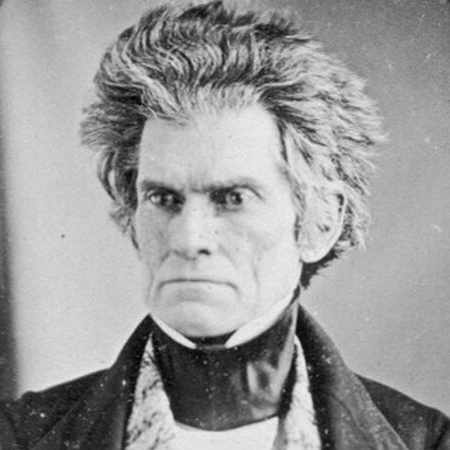Statesman or Politician? The Long View or A Suitcase of Cash?
My family, all 12 of us, just dodged a bullet. A few days ago we got back from a nifty vacation in Charleston, South Carolina. Long walks on the beach. History. Southern comfort food. The mayhem of five grandkids under the age of five. A day for those kids to collect a pile of sea shells and dodge fire ants on an island in the shadow of Fort Sumter.
But while we were there a little storm called Dorian was brewing up in the Caribbean. It wrought deadly havoc in the Bahamas before slowly moving onto the US coast. Where, as shown in this TV newscast it trashed the beach, after we left town, no more than 200 hundred yards from The Isle of Palms house where we were staying.
Nothing to see here
My wife and I got to Charleston a few days before the rest of the family. One of the things we did on our own was go to the downtown farmers market to stock up on the wonderful local produce in anticipation of the rest of the clan’s arrival.
But I didn’t go all the way to Charleston to go grocery shopping. So, while my wife poked around the market, I looked for a shady place under a tree in Marion Square. The park is named for the Revolutionary War hero, Francis Marion, i.e., The Swamp Fox. (See? You just can’t escape the history.) From my chair, I had an unobstructed view of a tall, spindly column with a statue on top at the far side of the park.
I knew enough to be able to guess who the figure atop the column might be, but it wasn’t I reached the base through the muggy heat ’til I knew for sure: John C. Calhoun. South Carolina’s one time favorite son. Vice President under both John Quincy Adams and Andrew Jackson. US Senator for South Carolina. Slave owner, yes. But more: apologist and defender of slavery as a “positive good.” The bête noire of the Left, he’s been largely disowned by the Right. Is it any wonder that Calhoun’s lofty column is nearly obscured from the view of the hoards of passing motorists by large trees that crowd around the monument’s base? Whether it remains standing or is torn down is the even now the subject of lively debate.
Dead wrong
One thing is clear: Calhoun was wrong about slavery. It’s degrading both to the masters and those held in bondage. But that hasn’t prevented slavery from being practiced in many cultures and civilizations right up to, and including, the present day. Of course, its slow, grudging extirpation has come about, in part, because of its moral failings.
But compelling arguments have also been made that slavery, in the end, failed not just because of its immorality. It’s also a wildly inefficient system for organizing an economy. Why? Sure labor costs might be low. But are workers more likely to be productive and innovative when they are whipped? Or when they are, as is generally the case in a market economy, rewarded for hard work? In the end, slavery probably failed for pretty much the same reason that communism wound up in the dust bin of history: “They pretend to pay us. We pretend to work.”
Inconvenient facts
But Calhoun didn’t just tout the benefits of slavery. Some of his other beliefs, though today little known, demonstrate that he was a profound political philosopher who was thoroughly acquainted with many of the subtle currents of Constitutional thought that were abroad in the decades leading up to the Civil War. And which continue to echo into the 21st century. And, if their origins were better known, would likely be a source of embarassment to his many detractors.
What if, in fact, the origins of such “odious” doctrines as nullification, states rights and interposition, with which Calhoun has been tarred, can be traced back to Founding Fathers whose credentials are impeccable? Founding Fathers of no less stature than Thomas Jefferson and James Madison?
“Not possible!” you say. Well, believe it. Because it was, in fact, the fertile minds of Jefferson and Madison that laid the foundations for these very doctrines that Calhoun built upon to attempt to limit what he perceived as unconstitutional infringements by the Federal government on the rights of states to reasonably order their own affairs.
States’ rights? Nullification? Secession? Gasp!
Let’s go back to ancient history. Ancient, at least, for a young nation like America.
In 1798, only 9 years after the Constitution was ratified, Congress, at the urging of President John Adams, passed the Alien and Sedition Acts. Enacted in response to an undeclared war with France, the acts made it a crime to falsely criticize the federal government, more difficult for aliens to become citizens, and easier to deport non-citizens deemed dangerous.
Two Founding Fathers, then Vice President Thomas Jefferson and James Madison, took particular umbrage to the Sedition Act because it impinged on the First Amendment guarantee of free speech. In response, they secretly drafted the Kentucky and Virginia Resolutions. The resolutions argued that the states had the right and duty to declare unconstitutional those acts of Congress that were not authorized by the Constitution-such as the Sedition Act. They, in short, took a resolute stand for states’ rights and strict construction of the Constitution. The Kentucky Resolution, drafted by no less than that demigod of American patriots, Thomas Jefferson, even went the next step and argued in favor of the much despised doctrine of nullification.
It’s true, no doubt, that the Resolutions were controversial and considered by some to be dangerous harbingers of disunion even in their own time. But the fact remains that the doctrines advanced by the Resolutions were first floated by Founding Fathers whose reputations are beyond reproach.
The Conservative Mind
In 1953 Russell Kirk published The Conservative Mind, a book that has ever since been considered a Rosetta Stone for understanding modern conservatism. Beginning with Edmond Burke, the British Parliamentarian who wrote Reflections on the Revolution in France in opposition to the murderous chaos of the French Revolution, Kirk goes on to describe the lives and works of such disparate conservative thinkers as Alexander Hamilton, Walter Scott, Alexis de Tocqueville, Robert Frost, T.S. Eliot and many others.
Among those is John C. Calhoun. Russell describes him as “the cast iron man . . . [whose] passion glowed out only through his eyes.” With that vision, Calhoun could write that “the naked question is, whether ours is a federal or a consolidated government; a constitutional or absolute one; a government resting ultimately on the solid basis of the sovereignty of the States or on the unrestrained will of a majority; a form of government, as in all other unlimited ones, in which injustice, and violence, and force must finally prevail.” Calhoun, following in the steps of Jefferson and Madison, was an unapologetic proponent of those “odious” doctrines of nullification, states rights and interposition.
A refuge for dissenters in an age of political division
In these last days, whether opprobrium is attached to the states’ rights doctrines advanced by Jefferson, Madison and, yes, Calhoun, seems largely dependent on whose ox is being gored.
For example, consider the California liberals who, in the wake of the election of Donald Trump, are gathering petition signatures to secede from the Union. Are these “rebels” your typical California fruits and nuts? Or are they on to something? Depends on who you ask.
Ask the Founding Fathers, the leaders of the 13 colonies’ war to secede from the British Empire, and they might be ambivalent. Ask Abraham Lincoln, the President whose resounding “No way!” got our nation embroiled in a war that cost the lives of more Americans than all the rest of our wars combined and he’d probably double down and say “No way!” again.
But ask a contemporary man or woman on the street and you’ll likely get a “Let ’em go.” And, at the very least, we can hope there would be virtually no appetite for renewing a bloody civil war if a state wants to part company on such “third rail” issues as abortion, marijuana, health care, immigration, and the like.
In fact, in a nation increasingly and bitterly divided along partisan lines, why not give the “states rights” doctrines of Jefferson, Madison and Calhoun a try? And then let people who feel strongly about those issues leave the states that don’t suit them. And move to the ones where they feel more at home.





Wouldn’t it be lovely? States’ rights is a nice idea, but the U.S. Federal government and the governments of the 50 United States and the European Union and its 28 member states are showing that states’ rights is a messy business. Glad The Cast Iron Man inspired such great thought and writing.
Layton,
Thanks for the visit and comment. No doubt it’s messy. But aren’t there glimmers of hope? Brexit? Trump? Despite his many faults. There seems to be a growing unease with these giant, unmanageable super-states.